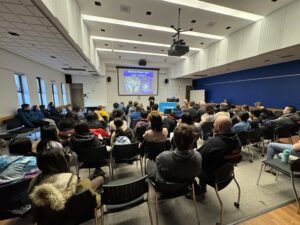The ATLAS collaboration, including members of the TRIUMF-ATLAS team, has been awarded the 2025 Breakthrough Prize in Fundamental Physics, alongside sister experiments ALICE, CMS and LHCb at the Large Hadron Collider (LHC).
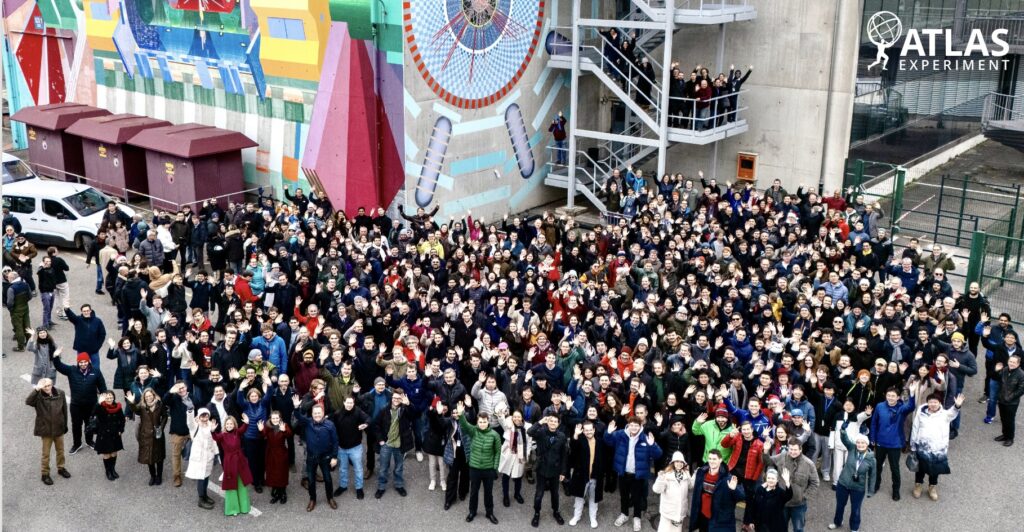
Group photo of the ATLAS collaboration
The ATLAS collaboration, including members of the TRIUMF-ATLAS team, has been awarded the 2025 Breakthrough Prize in Fundamental Physics, alongside sister Large Hadron Collider (LHC) experiments ALICE, CMS and LHCb.
The TRIUMF-ATLAS team members are among the thousands of researchers worldwide who were honored with the Prize, which recognizes the four different detector collaborations for their contributions to particle physics.
The Breakthrough Prize specifically highlights the ATLAS collaboration’s significant contributions to increasingly detailed measurements of Higgs boson properties, studies of rare processes and matter-antimatter asymmetry, and the exploration of nature under the most extreme conditions.
“The Breakthrough Prize is a testament to the dedication and ingenuity of the ATLAS Collaboration and our colleagues across the LHC experiments,” said ATLAS Spokesperson Stephane Willocq. “This prize recognises the collective vision and monumental effort of thousands of ATLAS collaborators worldwide.”
ATLAS is one of the largest and most complex scientific instruments ever built. As a general-purpose particle detector measuring over 40 metres in length and around 25 metres in height, it was designed to investigate the fundamental building blocks of matter and the forces governing our universe. Its cutting-edge systems track particles produced in particle collisions at unprecedented energies, enabling discoveries like the Higgs boson and searches for new physics beyond the Standard Model.
TRIUMF, Canada, and ATLAS
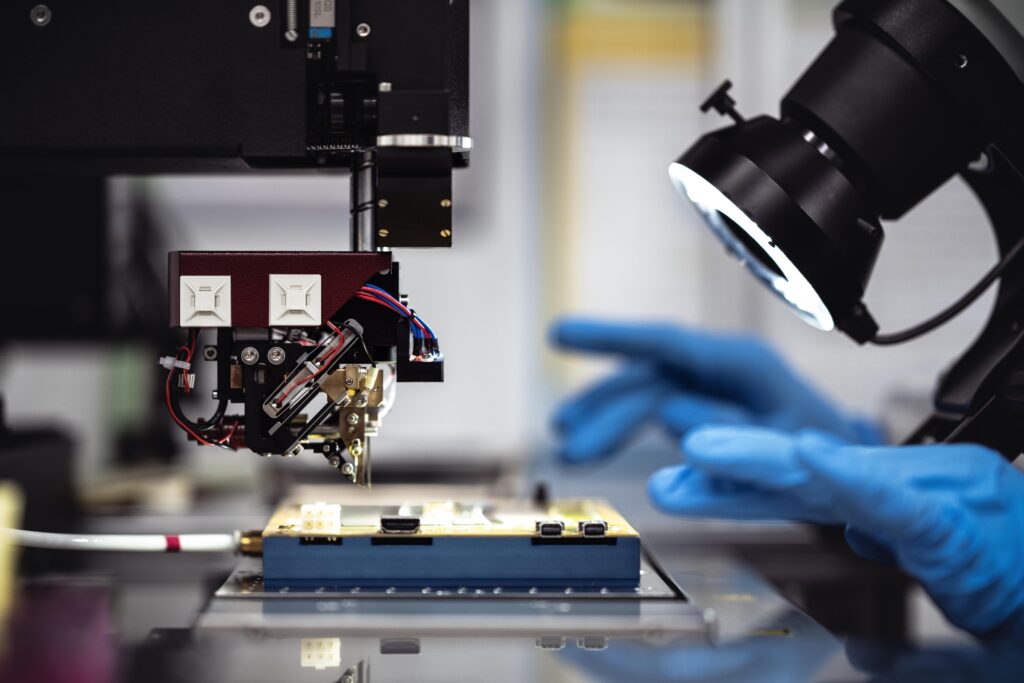
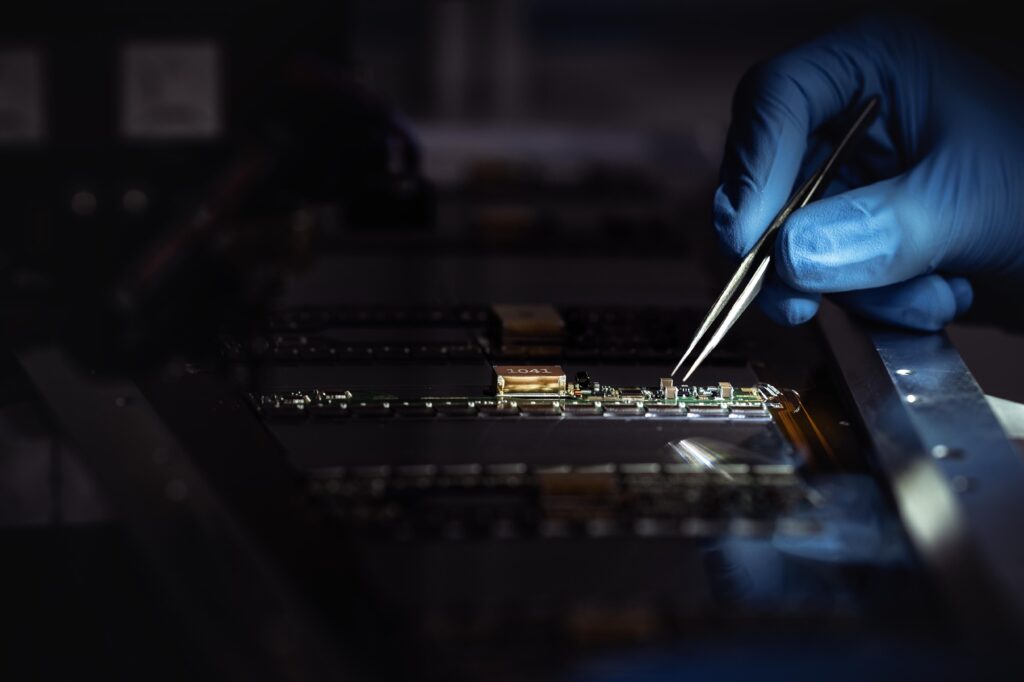
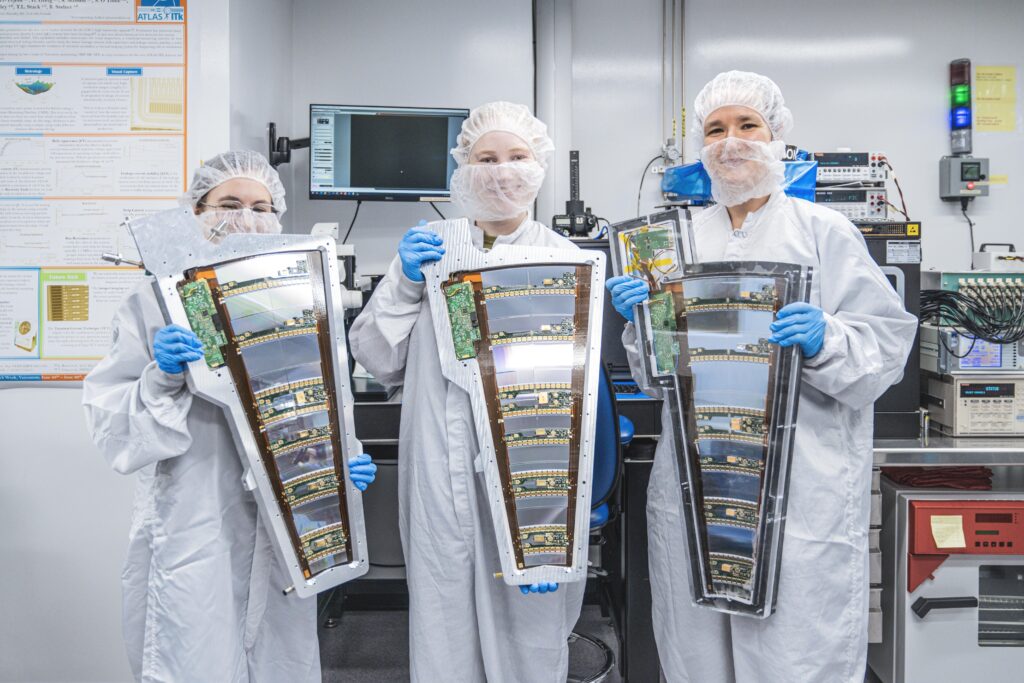
Operating from the TRIUMF campus and through TRIUMF’s member university network, the TRIUMF-ATLAS team helps coordinate Canada’s national contributions to ATLAS’ detector systems, upgrades, computing (including simulations, data processing, and data storage), collision data analysis, and more. Including the TRIUMF-ATLAS team members, the wider ATLAS-Canada collaboration numbers over 140 researchers who have been making critical contributions since the wider ATLAS collaboration’s inception in 1992, including:
- Construction and operation of liquid argon hadronic end-cap calorimeters, front-end electronics and the cryogenic feedthroughs; and improvements to the liquid argon calorimeter signal readout electronics
- Developing and hosting one of ten international Tier-1 data intensive computing centres for the ATLAS detector’s distributed computing network, part of the globe’s largest and most advanced scientific computing grid
- Development of numerous cloud computing and data analysis techniques, which support detailed studies of the properties of the Higgs boson, measurements of Standard Model parameters, and the search for new physics beyond the Standard Model
- Major contributions and construction to the new Inner Tracker detector (ITk) for the High Luminosity LHC upgrades, including building a significant portion of the 7,000 silicon strip modules for endcaps.
- Major contributions to the Muon New Small Wheel detector (NSW), including building one-quarter of the small-strip Thin Gap Chambers (sTGCs), gas wire detectors that are one of the NSWs’ two key detector technologies
You can learn more about TRIUMF’s contributions to ATLAS here.
“We are reaping this rich harvest of previously impossible precision measurements, now and for years to come, from our long-term investment in the ATLAS and LHC systems we have designed, built and maintained over the past three decades. It is the adventure of a lifetime, and we have still only scratched the surface,” said Isabel Trigger, TRIUMF-ATLAS team leader.
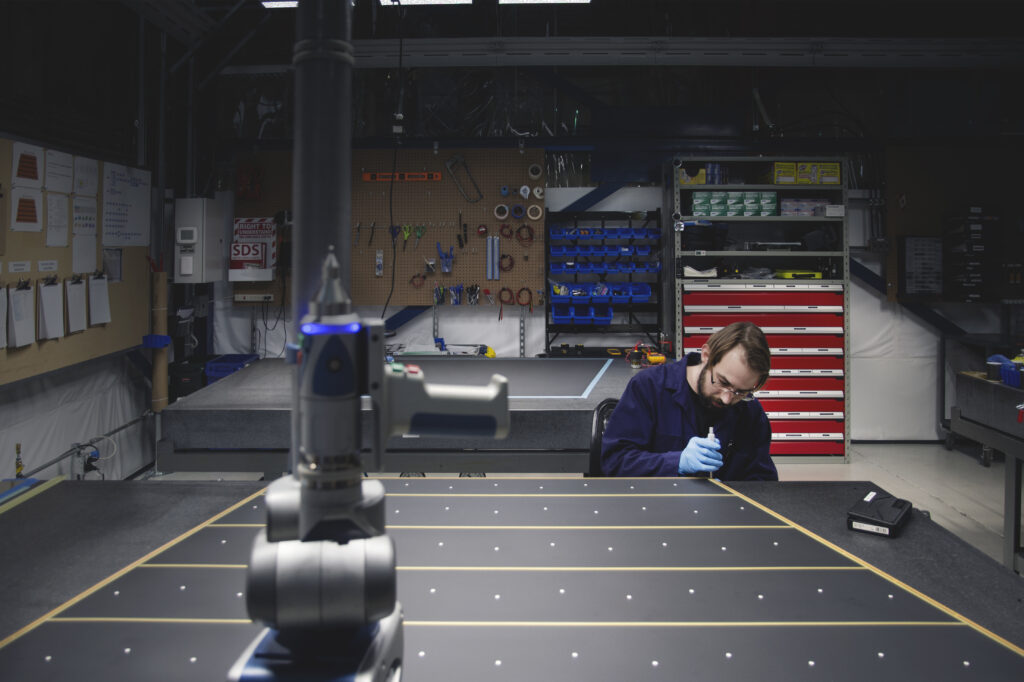
TRIUMF development of the upgraded small-strip Thin Gap Chambers (sTGCs), gas wire detectors that are one of the New Small Wheel’s two key detector technologies.
Through TRIUMF and its academic and industry networks, Canada has also made numerous in-kind contributions to the wider accelerator infrastructure of the LHC, including contributions on the injector synchrotrons, LHC injection kicker systems, twin-aperture quadrupoles, and more. The Canadian community is also applying its world-leading expertise to tackle a mission-critical challenge for the High Luminosity LHC upgrades: building five new particle accelerator components called crab cavity cryogenic modules. These cryogenic modules are essential for the operation of crab cavities – sophisticated radiofrequency cavities that rotate the accelerated bunches of subatomic particles before they smash together, significantly increasing the number of collisions (the luminosity) of the LHC.
“At TRIUMF, our contributions range from key components for the accelerator, as well as the ATLAS detector, computing and novel data analysis techniques. This reflects the innovation driving ATLAS forward,” said Oliver Stelzer, TRIUMF Department Head, Particle Physics, Physical Sciences Division. “This recognition inspires us to keep pushing the boundaries in our quest to answer the universe’s fundamental questions.”
“This prestigious award and recognition is an attestation of the required global effort and international cooperation to develop and establish the Worldwide LHC Computing Grid, the most successful and efficient distributed computing and software infrastructure in human history, that is necessary to store and analyze vast amount of data in a highly secure environment. Canada, through TRIUMF, played a key role with significant contributions,” said Reda Tafirout, TRIUMF Department Head, Scientific Computing, and Canadian Tier-1 Centre Director of Operations.
After consultation with their members, the four experimental collaborations have elected to donate the shared Breakthrough Prize $3M USD award back to CERN via its philanthropic arm, CERN & Society.
“I am extremely proud to see the extraordinary accomplishments of the LHC collaborations honoured with this prestigious Prize,” said Fabiola Gianotti, Director-General of CERN. “It is a beautiful recognition of the collective efforts, dedication, competence and hard work of thousands of people from all over the world who contribute daily to pushing the boundaries of human knowledge.”
While the ATLAS Collaboration celebrates the recognition of the Breakthrough Prize, its focus remains firmly on the future. The third operation period of the LHC is currently underway and preparations for the High-Luminosity LHC (HL-LHC) upgrade are advancing rapidly.
“Physicists and engineers at TRIUMF and across Canada, are playing a pivotal role in constructing the ATLAS detectors for the future, designed to harness the unprecedented data from the HL-LHC, an endeavor aimed to further push our understanding of the fundamental nature of the universe,” said Bernd Stelzer, TRIUMF Project Leader for the ATLAS ITk upgrade.
Congratulations to the TRIUMF-ATLAS team, and the wider ATLAS collaboration!



